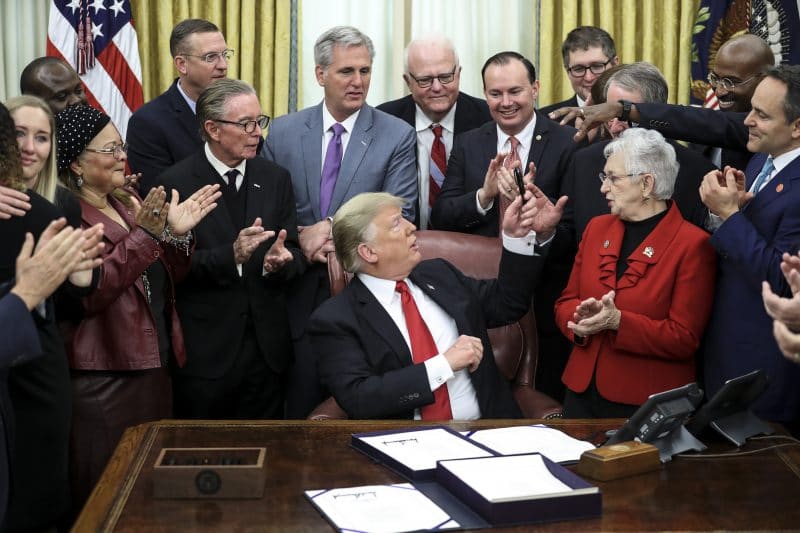The First Step Act Set to Unshackle Women in the Prison System

A number of provisions in the First Step Act, signed into law by President Trump last month, are going to make the lives of federally incarcerated females a little less burdensome.
The bill, which passed through the U.S. House of Representatives 358-36 and U.S. Senate 87-12, will officially outlaw restraining pregnant inmates for the duration of their pregnancy, during labor, and postpartum.
Restraints in the legislation are defined as “any physical or mechanical device used to control the movement of a prisoner’s body, limbs, or both”. Some examples would be- restraints around the ankles, legs, or waist of a prisoner; restraints placed on prisoner’s hands, four-point restraints, and attaching a prisoner to another prisoner.
According to the bill, the moment that a woman is declared pregnant by a healthcare professional, restraints must not be used. Inmates, who have given birth, have a 12-week period or longer, as determined by a healthcare professional, for the policy to stay in effect and for the shackles to stay off.
Historically, inmates have been restrained for being potential flight-risks, or presenting a risk to themselves or others. And while it may be effective in other cases, shackling pregnant women presents risks both for the baby and mother.
Shackling both legs and arms could result in a pregnant inmate falling and damaging the fetus. Also, there have been multiple cases of female inmates being physically harmed during childbirth on account of restraints not allowing for natural movement.
Another provision included in the bill is the requirement for federal facilities to provide feminine hygiene products to inmates for free. Until recently, many prisons required women to purchase sanitary pads and tampons. Alongside of that, hygiene products will now be provided “in a quantity that is appropriate to the healthcare needs of each prisoner.” This changes the status quo where female prisoners were allotted a specific number of feminine hygiene products per month and nothing more.
A final provision impacting the welfare of female inmates is the requirement for those incarcerated in federal facilities to be placed within 500 miles of their close relatives. This lessens the burden for mothers who go months and even years without seeing their children on account of the prisons not being in close proximity.
It is important to stress that this bill does not impact state and local prisons. The bill only affects the conditions of inmates who are incarcerated in federal prisons and under the jurisdiction of the U.S. Marshals Service.
On a state-by-state basis, 28 states out of 50 do not have legislation preventing the restraining of women. So hypothetically speaking, the practice of shackling can continue at the state and local levels.























